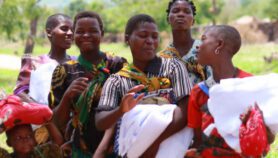Send to a friend
The details you provide on this page will not be used to send unsolicited email, and will not be sold to a 3rd party. See privacy policy.
Below is a round up of news from or about South Asia for the period 27 November–10 December 2008.
Pakistan sets up tsunami warning centre
Pakistan has set up a tsunami warning centre and a quake-monitoring network in Karachi. The network comprises 11 seismic monitoring stations throughout the country and is connected to a global seismic network of around 60 stations to collect real-time data. More>>
Bangladesh calls for adaptation research centre
Bangladesh told the UN Climate Change Conference in Poznan, Poland, that it wants an international centre for climate change adaptation research to be set up in its capital Dhaka. The request was part of the country’s appeal for a more conducive environment for climate change adaptation. More>>
Post-conflict healthcare ‘extended by contracts’
Health services in post-conflict areas with poor access to basic healthcare can be extended by contracting healthcare to national and international nongovernmental organisations, a study in Afghanistan shows. The cost is not affected by security issues, a report in the WHO Bulletin says. More>>
Himalayan countries to gather climate change data
Governments and international organisations in the Hindu-Kush Himalayas plan to gather key information on the impact of climate change in the region and devise ways to combat it. The Intergovernmental Panel on Climate Change identifies the region as a ‘white spot’ lacking in data. More>>
Scientists find way to assess Indian dust’s climate role
Scientists have developed a model to study the optical properties of irregularly-shaped dust particles from the Indian desert. The method could give better estimations of how Indian desert dust leads to changes in the upper layers of the atmosphere and influences the climate. More>>
Researchers document newborn care practices in South Asia
Researchers have surveyed and recorded newborn care practices in poor and rural areas of Bangladesh, Nepal and Pakistan. They found barriers to care-seeking and a limited knowledge of the danger signs of poor health. The findings were used to design strategies to change behaviour. Meanwhile, the UN announced a US$3 million emergency fund to fight malnutrition in Nepal.
Chronic diseases ‘high’ in South Asian immigrant groups
Immigrant groups from South Asia have a higher incidence of obesity and diabetes, a study has found. The research looked at the health of immigrants from Iran, Pakistan, Sri Lanka, Turkey and Vietnam to Norway, and compared their health with each other and Norwegian people. More>>
Compiled by T. V. Padma, with additional reporting by Suhail Yusuf.
If you would like to suggest a story for this news in brief, please contact the South Asia Regional Coordinator T. V. Padma ([email protected]).













